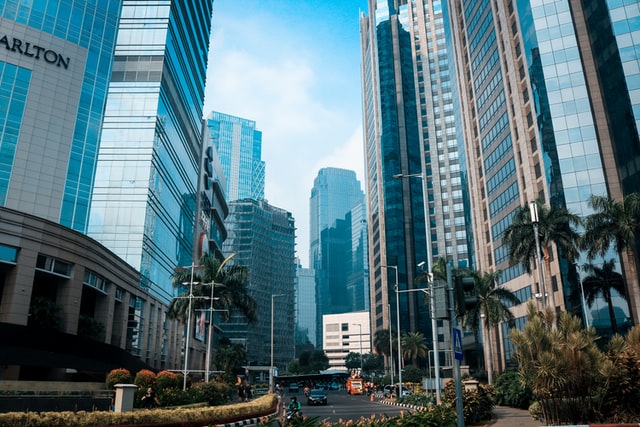Governor of DKI Jakarta Anies Baswedan has offered further clarification on policies in place to facilitate tighter large-scale social restrictions (PSBB) over the next two weeks.
This time, self-isolation at is prohibited due to the potential for transmission of home clusters. If there are positive patients who refuse to isolate, they will be picked up by officers accompanied by law enforcement.
“Everyone found positive is required to be isolated in a designated place,” Anies said.
Moreover, offices, both government and private, are required to operate at 25 percent capacity. This is in accordance with the policy of the Ministry of State Apparatus Utilisation and Bureaucratic Reform (PAN-RB) for areas that have a high risk of COVID-19 transmission.
Leaders have the right to make adjustments related to basic public services that require more than 25 percent of employees in the office, such as disaster management, law enforcement, and other sectors. However, the 25 percent requirement does not apply if the office area is positively infected with COVID-19.
“If a positive case is found, all business and activities, across the building, must be closed for at least three days. It’s set in Pergub number 88,” he said.
Meanwhile, the 11 business sectors that are allowed to operate during the tighter PSBB are still requested to keep below half of the total normal capacity. This includes health, food and beverage, energy, communication and informatics technology, finance, logistics, hospitality, construction, strategic industries, basic services, public utilities, and industries designated as national vital objects as well as for the fulfilment of daily needs. Business sectors that are considered non-essential must apply for a permit beforehand to the provincial government of DKI Jakarta.
Shopping malls and markets may operate at 50 percent capacity and follow health protocols. However, Anies threatened to close all operations in the event of a positive case is found.
Restaurants inside the mall are not allowed to serve dine-in customers. Visitors are only allowed to order take away or make delivery bookings.
“Based on the coordination of the central government and the provincial government of DKI Jakarta that’s been going on for several days, transportation control that is carried out still refers to Permenhub 41 Year 2020 and its derivative rule is the circular letter of the Ministry of Foreign Affairs which was issued on 8th June 2020,” said Ministry of Transportation Spokesman Adita Irawati.
Public transportation will only carry 50 percent capacity and the frequency of public transportation services and fleets such as TransJakarta, KRL, MRT, and LRT in Jakarta will also be limited.
Pivate vehicles can only be filled with a maximum of two people per row of seats, unless they come from the same home. Motorcycles, both for personal and one ojek use, are still allowed to carry passengers with the implementation of health protocols.
The requirements of intercity passengers will still refer to Task Force Circular Letter no. 9 of 2020 where a rapid test or PCR test with negative results will also still be applied.
The operators of infrastructure and facilities must ensure all protocols set out in the circular letter of the Minister of Transportation no. 11 for land transportation, no 12 for sea transportation, no 13 for air transport, and no 14 for rail transportation are implemented in accordance with the provisions.
Passengers and officers are required to wear masks and keep their distance. Meanwhile, operators are obliged to ensure maximum capacity restrictions on passengers, provide hand sanitiser, and spray disinfectants on transportation facilities and infrastructure periodically to prevent COVID-19 transmission in public transportation areas.
Source: CNN Indonesia




